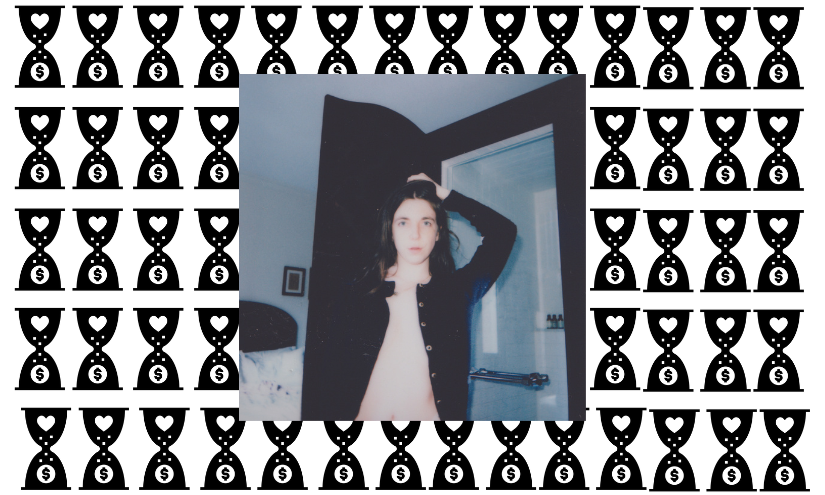If we ‘do not dream of labor’, what do we dream of?
Admitting that what we hold dear is not outside of the grasp of the system we revile is not admitting defeat; it is accurately assessing the conditions so that we might fight back.

There’s a now-famous aphorism, shared so often that its attribution is lost: Someone asks, “What’s your dream job?” and someone answers, “I do not dream of labor.” What to dream of, then?
I dream of strange sky-worlds; the dirty ocean at Rockaway Beach; the ecstatic feeling in the middle of a second glass of wine; the juvenile romance of blood oaths; seeing again those I grew up with who have since died, on some other translucent plane; the perfect sliced mango that I ate once with my closest friend, a conduit to God in an unassuming plastic container; a place where it is never winter and I am never sad.
Of cops swallowed by a wave. Of prison bars spontaneously turning to dust. Of welding an enormous metal sculpture that says all of the things I would like it to say without using any words. Of staying in bed all day. Of everyone doing exactly as they want. Of my favorite hoof shoes in a color that does not yet exist. Of new sex with new people that is complicated but faultless. Of my orange cat living to thirty. Of marrying my boyfriend. Of having babies. Of playing with other people’s babies. Of a performance in which the floor is full of babies, like Acconci wanted.
I hold ardent solidarity with all who commit crimes and all who have dreams. I seek affinity with those who want to work as little as possible; with those who can’t work. My boyfriend used to wear a leather jacket with these words painted on: IF WE ALL SPIT AT ONCE THEY WILL DROWN. It was a bastardization of a quote from Bob Crow, RMT Union general secretary, in England: “If we all spit together we can drown the bastards.” It’s a delicious image, deluging those who want us unorganized, underpaid, exploited— with our own saliva.
A fantasy persists that capitalism is not a totalizing system of domination. A fantasy persists that spheres of our private lives are able to function outside of capital’s grasp; that it is possible to keep sacred, emotional, creative, and interpersonal spaces apart from capital’s hold over the rest of our lives. Part of the fantasy is that preserving these spaces apart is, in fact, desirable and possibly even transgressive against capital. This is untrue.
The anarchist prostitute, the artist whoring herself out, and the whore spending nearly every waking hour on her art — she takes on the call of the vision machine; she strives to make the battlefield manifest. She loathes Empire with all her big, beautiful, calculating heart, and yet she knows everything she does, makes, loves, fucks, and kills is born and dies within it.
Admitting that what we hold dear is not outside of the grasp of the system we revile is not admitting defeat; it is accurately assessing the conditions so that we might fight back. Like
Marlo says in the famous scene from The Wire, when he— ruthless and all-powerful head of the city’s largest drug operation— steals candy while staring into the face of the corner store’s security guard, purely to show he can do whatever he wants, and is then confronted by the security guard outside, who protests, “I am a man, I’m here”— like Marlo says, then, sucking on the lollipop he stole: “You want it to be one way— but it’s the other way.” The power of Empire functions the other way.
Foucault explains power as insidious and disciplining, composed of myriad “relations,” as opposed to one discrete and brutal force. For Foucault, power is not merely a thing exercised over us, by rulers, or institutions; it is not wielded, held, or lost. It is produced within and around any relation, produced and reproduced by our participation in normative institutions and, just as often, by our resistance to normative institutions. Thus, attempts to demarcate our lives into categories within and outside of commodification— commonly called the work-life balance— are more than futile: such attempts actively reinscribe the dominance of capitalist work as the defining structure of our lives.
To imagine that sex could or should be protected from commodification under our current economic system is to deny the diffuse nature of the imagined boundary between work and life, and to resign ourselves to a paltry vision of what our interpersonal relationships to and around sex can be. And when I say sex, I mean our sex lives, not sex as a tool for marketing, not the sex in sex sells.
Here is an example: if a person works 9 to 5 in an office, they are likely not having sex on the clock. They get home at six; their partner, who has a longer commute, gets home at seven thirty. One of them showers; the other orders takeout. They are tired, and they check their emails. One of them takes a phone call from a colleague working remotely in a time zone three hours earlier. They have left work but they are still preoccupied by it, even though they are now in life’s territory. They binge-watch a television show, which probably makes a joke at the expense of sex workers; most of my favorite shows do.
This is not a commentary on whether or not the modern, working couple is having good sex, or having sex frequently, or even on whether or not they are having the kind of sex they want to have— it is merely a statement of fact, that whatever sex they are having is structured, at every turn, by the limitations of their working lives, because their working lives structure both survival (and its obstacles) and leisure: schedule, sleep, income, health insurance, disability, geographic location, energy.
And as work from home becomes more common, the boundary between work life and domestic life, work life and erotic life, breaks down even further, casting a shadow of unproductivity and guilt on all non-work activity done at home, particularly during traditional working hours. Money and survival dominate so much of our psychic life under capitalism.
There is no outside to work, if work in this reading is a metonym for the material and psychic circumstances of those who must earn a wage to trade for the basic rights of housing, food, medical care, child care, pleasures, and autonomy. And, indeed, in a Foucaultian way, maintaining that there is an outside to work only produces a power relation that reinforces the disciplining apparatuses of work; the couple, or the family, or the friends, participate in a mutual make-believe wherein they are truly off when they are off, as opposed to off in relation to work, off inflected by work.
The illusion of off-time and its benefits facilitates their acquiescence to on-time; “at least we get a weekend,” they might say, “at least we have this vacation.” The greatest relief freedom from a daily job gives me is not having to dread work— not the individual act of working, but the endless concept, extending forever out in front, always upcoming and overtaking— as opposed to a discrete event bracketed by whatever else I want to do.
Nonetheless, my perspective is not the dominant one. Myriad self-help gurus, books, and articles extoll the foundational importance of achieving work-life balance and offer tricks to do just so— “37 Tips for a Better Work-Life Balance”; “Post Covid, What Work-Life Balance Needs”; “4 Easy Ways to Maintain a Healthy Work-Life Balance”; “Creating Work-Life Balance When Returning to Office”— squarely pitting work and life against one another. This creates what is both a necessary and misleading dichotomy. The dichotomy is misleading for the reasons previously outlined; the dichotomy is also necessary because one assumes that without it, life would simply be subsumed within work— life, the wave, and work, the ocean.
When you first learn how to draw from life, through still life or figurative sketching, you are told one rule alone: Draw what you see, not what you think you see. Draw this apple, or this body, or this vase, as you really see it— not as an approximation of what you’ve been taught an apple, or a body, or a vase looks like.
I don’t want to live an approximation of a life I’ve been taught to see, a life that I only think I see. I want to live a life that I see.
— An edited excerpt from Working Girl: On Selling Art and Selling Sex by Sophia Giovannitti
